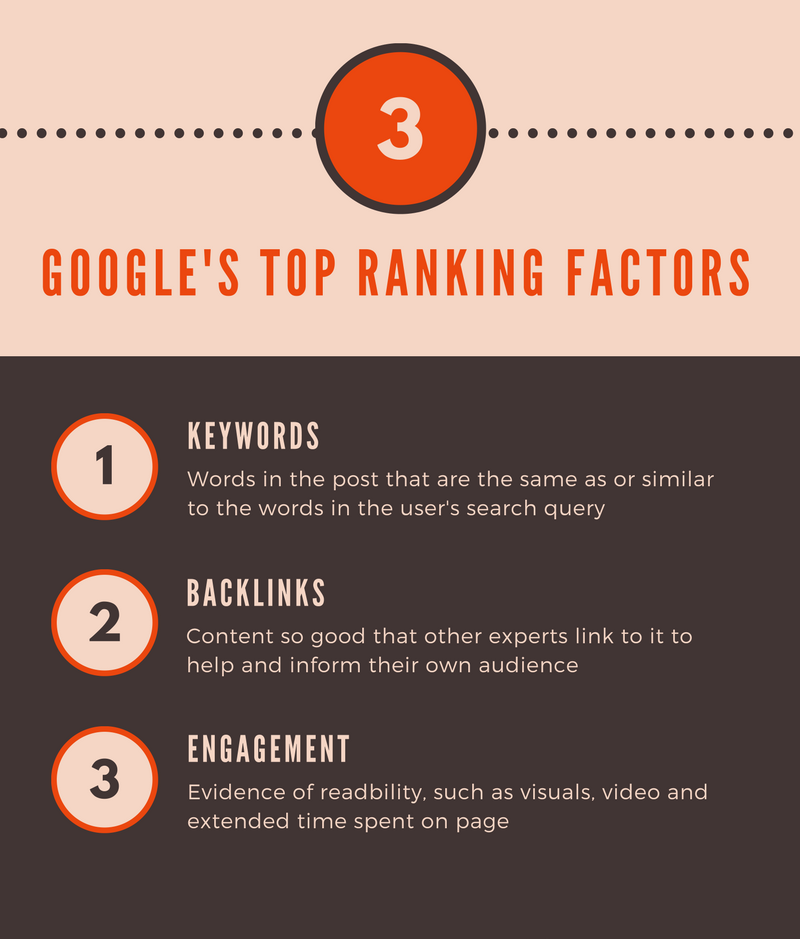4 Reasons Why Your Business Needs a Blog
Here goes, my first ever blog for my new business. I've built my website and spent £8 on a lovely picture for the top of what is — not for long — an empty blog landing page. Now all I have to do is fill it with scintillating, edutaining copy, replete with deep insights and search engine optimising shizam. Easy, right?
I wonder then, why it took weeks of blog-dodging behaviours — including but not limited to; filing a tax return, creating numerous social media accounts and getting the bathroom spotless — before I finally sat down and put finger ends to plastic squares?
Whether you lack confidence in your writing skills, feel self-conscious or under-qualified to educate, lack ideas or simply don't have the time, blogs are responsible for many a hateful task getting done instead. And is there even any point?
The answer is yes. Blogging can benefit your business in many ways.
You know an awful lot of things your audience wants to know, and letting those things tumble out of your brain is the first step to building a relationship that can lead to a sale. Blogging demonstrates your expertise, helps search engines work out who to put you in front of, builds rapport and shows how helpful you are. So read on, then get writing.
1. Blogging proves you know what you're talking about
Between you and the people who need what your business provides, you're the expert. You hold key information about how to solve their problems. The challenge on the web is to get that across to people you won't necessarily meet. Expressing your knowledge in blogs, vlogs, tweets or any other way shows not only do you know what you're talking about but also that you're not afraid to say so.
When we're looking for solutions, we don't always Google for a business to help us straight away, but we might Google to see if it's a problem we can solve ourselves.
What problems do you solve? Broken cars? Ugly gardens? Tell people how to solve their problems in any way they can understand and relate to, and, bingo, you become the business they turn to when they realise they do need professional help after all.
2. Google loves a blogger
Second on the list, but actually joint first: Google (and, by extension, people who Google) favours websites that are regularly updated with rich, informative content relevant to what appears to be the point of the site.
That is to say, if you're a dog trainer and you optimise your website for dog training keywords, your blog must also relate to dog training in order to search engine optimise your site.
In addition, if each blog post answers a common dog-training question, it's more likely to appear in search results when people ask Google that specific question. For blog ideas, Google dog training tips and see what comes up. Or type ‘How can I train my dog to' into Google and see how it suggests you finish the sentence.
Finally, if your articles are authoritative and entertaining enough, they'll be picked up and linked to from other websites. These ‘backlinks' are another way Google can tell you're an expert in your field.
3. Finding your voice works wonders for your confidence – and tells people who you really are
Some of us fear the blog because it means broadcasting your knowledge to a world that probably already knows what you've got to say (they don't). Some of us fear being a bad writer.
The fact is, no matter how many other people do what you do, there's only one you. How and what you choose to communicate is unique, and guaranteed to strike a chord with someone. Whether it's your quirky style or the particular professional interest or specialism you hold, your blogs will be different from anyone else's, and are just as deserving of being read. The more you do it, the better you get at it.
In an internet bursting with blogging tips, one holds truer than all the rest: make it authentically you. The truer you are to yourself, the better you'll come across and the quicker your posts will be to write. Yes, there are lots of techniques you can employ to grab your readers' attentions and keep them going to the end but if you don't sound like you, your posts will sound inconsistent and awkward.
Your authentic voice is the voice of your brand and your business. It lets people in and helps them make a deeper, more emotional decision on whether to do business with you. You don't have to be a great writer — in some ways it helps if you're not — but you need an authentic, consistent voice to build trust and rapport with your readers.
4. Helping people makes you feel (and look) nice
At the root of most of our choices of job or business venture is the motivation to help in some way. Even if you'd rather spend your day talking to a radiator than a person, you can't beat the feeling of walking out of someone's house knowing you're the hero that made them warm again.
Not only does a blogful of helpful tips and advice make you feel good, it creates a positive experience of your business too. It sends a strong message that you'll go the extra mile to serve your customers.
Go forth and blog
Blogging is fundamental to locating and building a relationship with online customers — people you may not speak to until near the end of the buying process (if you speak to them at all).
It's also empowering, fun and philanthropic. What are you waiting for?
If you need help getting started or coming up with themes and ideas for your blog, get in touch.










